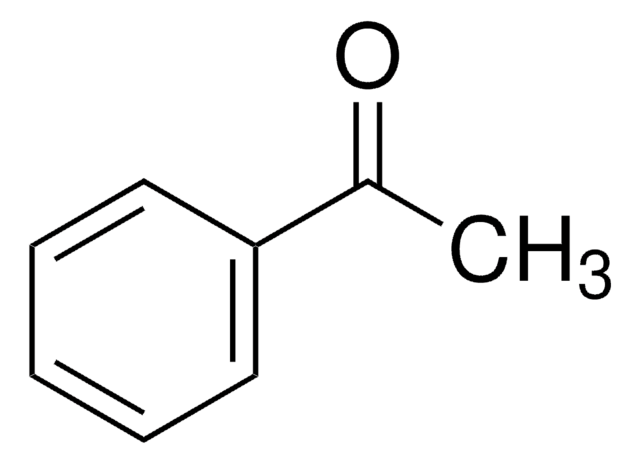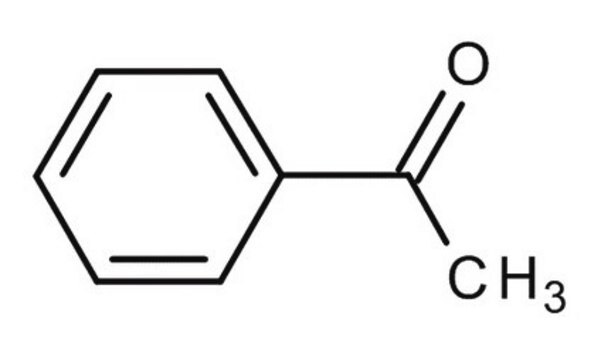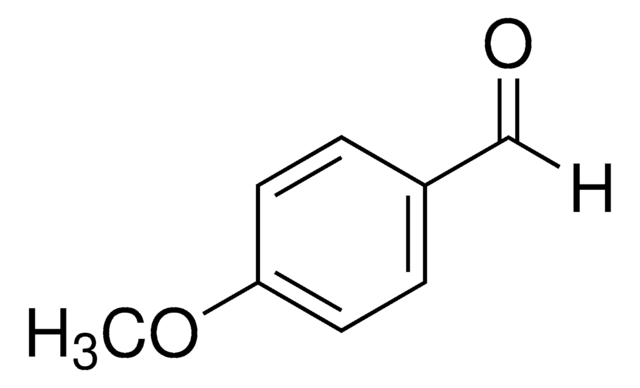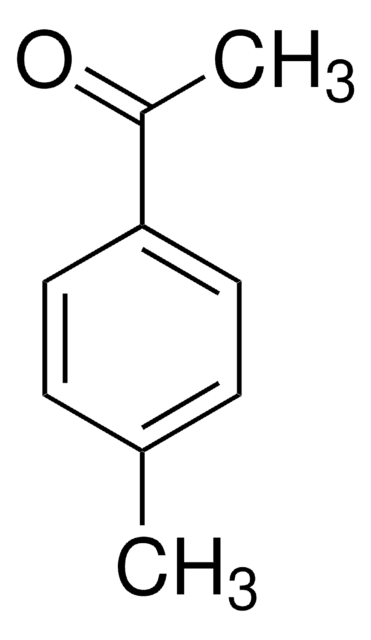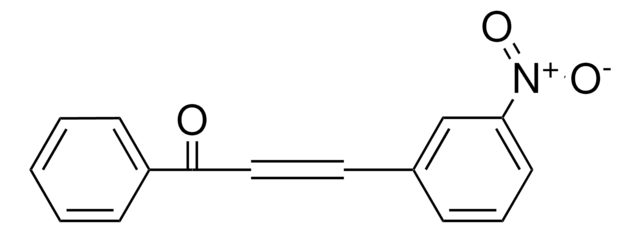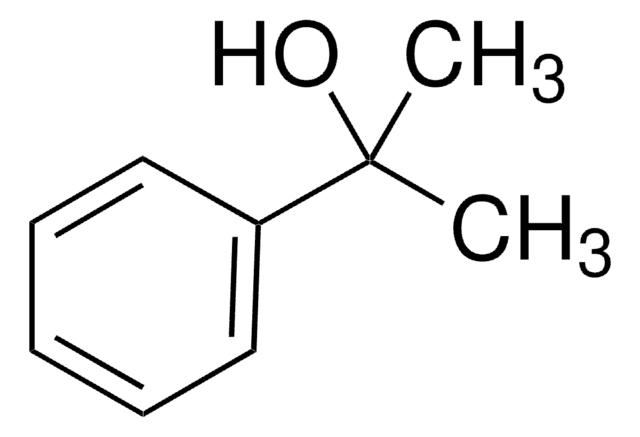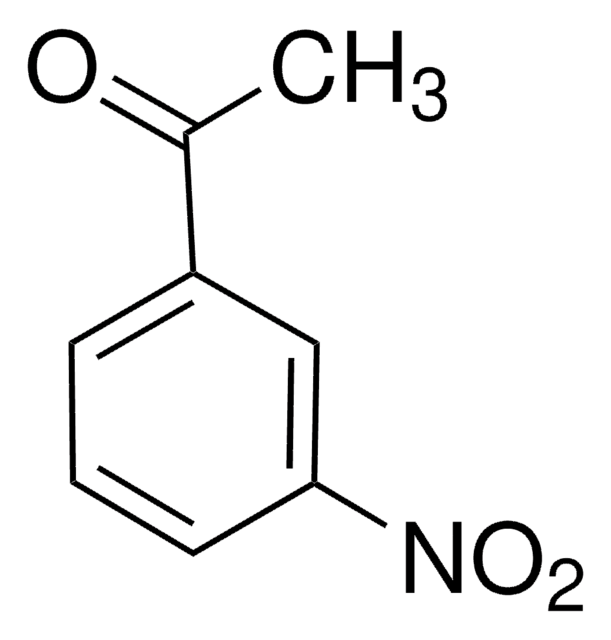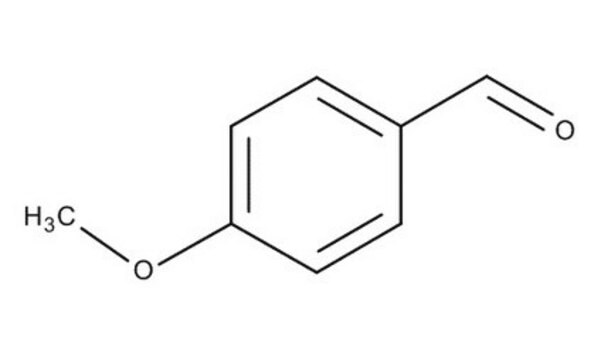A10701
Acetophenone
ReagentPlus®, 99%
Synonyme(s) :
Methyl phenyl ketone
About This Item
Produits recommandés
Densité de vapeur
4.1 (vs air)
Niveau de qualité
Pression de vapeur
0.45 mmHg ( 25 °C)
1 mmHg ( 15 °C)
Gamme de produits
ReagentPlus®
Pureté
99%
Forme
liquid
Température d'inflammation spontanée
1058 °F
Indice de réfraction
n20/D 1.534 (lit.)
Point d'ébullition
202 °C (lit.)
Pf
19-20 °C (lit.)
Densité
1.03 g/mL at 25 °C (lit.)
Chaîne SMILES
CC(=O)c1ccccc1
InChI
1S/C8H8O/c1-7(9)8-5-3-2-4-6-8/h2-6H,1H3
Clé InChI
KWOLFJPFCHCOCG-UHFFFAOYSA-N
Vous recherchez des produits similaires ? Visite Guide de comparaison des produits
Description générale
Acetophenone (AP, methyl phenyl ketone) is a common industrial solvent. It can be synthesized from 1-phenylethanol in the presence of PdAu-NPs-TiO2 (titanium dioxide-supported palladium gold bimetallic nanoparticles) hybrid. Its vacuum ultraviolet absorption spectrum shows absorption bands at 196, 191, 179 and 167mμ. AP reacts with α-naphtylphenylsilane in the presence of N-chelate ligands based on chiral oxazolines to undergo hydrosilylation with high enantioselectivity. It can also undergo hydrogenation reaction in the presence of different transition metal catalysts under different conditions.
Application
Informations légales
Mention d'avertissement
Warning
Mentions de danger
Conseils de prudence
Classification des risques
Acute Tox. 4 Oral - Eye Irrit. 2
Code de la classe de stockage
10 - Combustible liquids
Classe de danger pour l'eau (WGK)
WGK 1
Point d'éclair (°F)
179.6 °F - closed cup
Point d'éclair (°C)
82 °C - closed cup
Équipement de protection individuelle
Eyeshields, Faceshields, Gloves, type ABEK (EN14387) respirator filter
Faites votre choix parmi les versions les plus récentes :
Déjà en possession de ce produit ?
Retrouvez la documentation relative aux produits que vous avez récemment achetés dans la Bibliothèque de documents.
Les clients ont également consulté
Notre équipe de scientifiques dispose d'une expérience dans tous les secteurs de la recherche, notamment en sciences de la vie, science des matériaux, synthèse chimique, chromatographie, analyse et dans de nombreux autres domaines..
Contacter notre Service technique